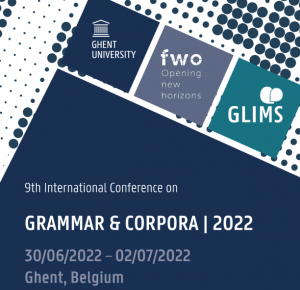
In recent years, the increasing availability of large annotated and searchable corpora and a renewal of interest in the empirical foundations of linguistics have sparked a surge of corpus-linguistic work on the grammar of natural languages. It reveals a diversity of approaches and empirical foci which can in part be traced back to different theoretical and methodological paradigms, but also to the separate philological and linguistic traditions of English, the other Germanic languages, the Romance and Slavic families, and so on.
Far from being an obstacle to scholarly progress, the resulting variety of perspectives provides an ideal basis for a fruitful exchange of ideas between researchers over topics and issues such as the creation and relative merits of different types of corpora, new annotation and parsing techniques, the use of advanced statistical methods and models, the triangulation of corpus data with methods from psycholinguistics and other neighbouring disciplines, the discourse-grammar interface, and more generally the impact of corpus linguistics on linguistic theory.
The 9th Grammar and Corpora (GaC) conference seeks to provide a forum for such exchanges. Submissions are invited that enhance our knowledge and understanding of individual languages through the use of corpus methods in the description and theoretical analysis of the grammar of natural languages, and/or the implications of corpus-linguistic work for our discipline at large. Focal areas of interest include, but are not limited to:
- the use of corpora in the description of grammatical patterns, including the discourse-grammar interface, from language-particular or contrastive/crosslinguistic perspectives
- tools, methods and techniques in the assembly, annotation and grammar-related analysis of corpora
- the characteristics and relative merits of (combinations of) different types of corpora in the study of grammatical patterns
- the use of statistical and quantitative methods and the triangulation of corpus-linguistic results with data from other (e.g. experimental) approaches
- the interaction of corpus linguistics with neighbouring disciplines such as computational linguistics, psycholinguistics, translation studies etc.
- the identification and modelling of (different types of) grammatical variation using corpus methods and the link between synchronic variation and change-in-progress
- the use of advanced corpus-linguistic and statistical methods in historical linguistics
- the impact of corpus linguistics on our understanding of grammar, language change and the foundational concepts of linguistics at large
A subset of these issues will be the focus of several invited keynotes, a Tutorial Day on corpus-linguistic tools and techniques, a theme panel on the role of corpus linguistics in research on linguistic productivity, and a poster session. The conference language will be English.
IMPORTANT DATES
05 December 2021: deadline for abstract submission (extended from 30 November)
15 March 2022: notification of acceptance/rejection, registration opens soon after
31 May 2022: early-bird registration closes
30 June – 2 July 2022: conference